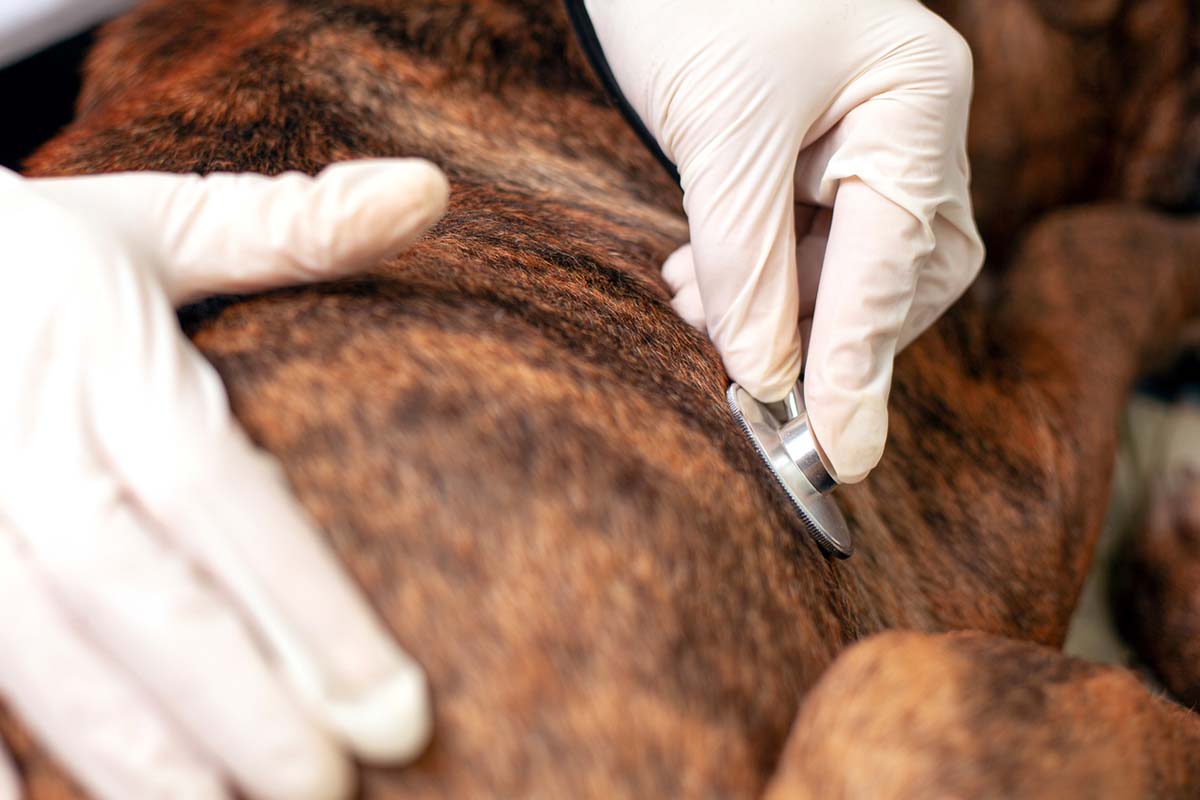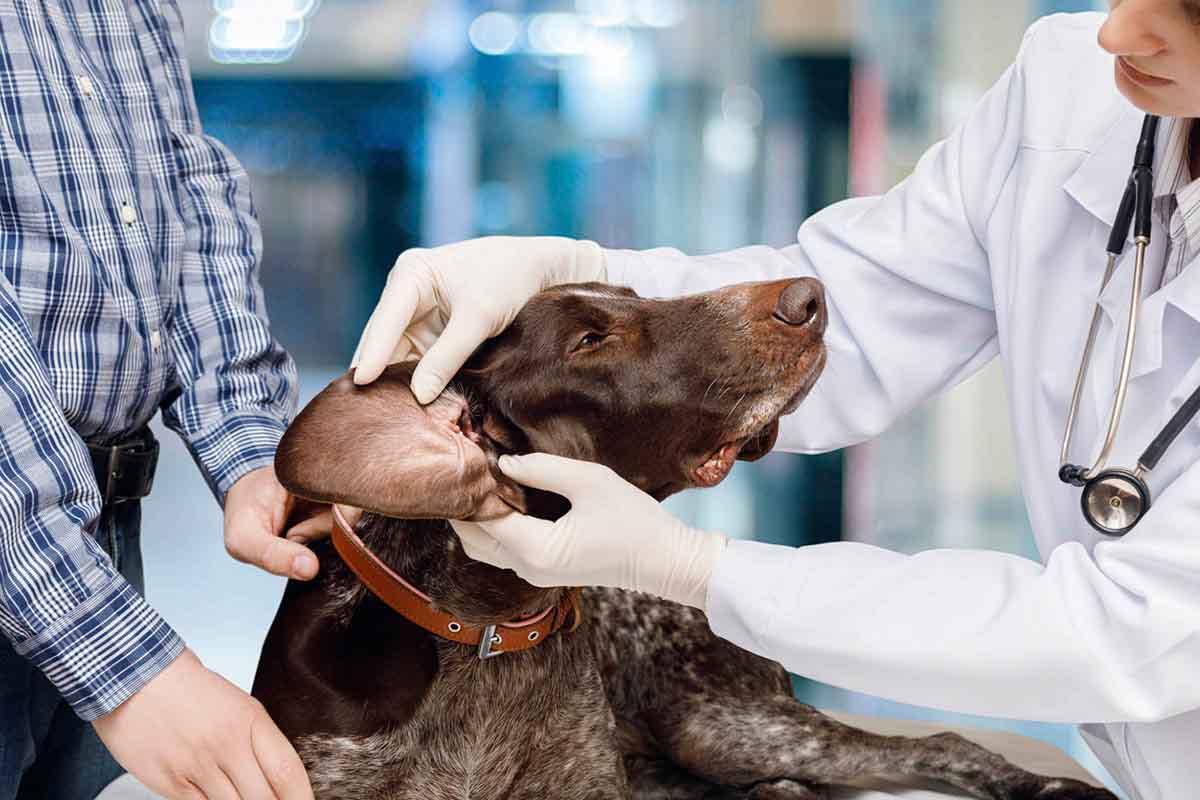Can Dogs Have Heart Attacks?
Heart disease isn’t just a human problem. It can also affect our beloved pups and lead to several heart problems, including heart attacks.
Heart disease isn’t just a human problem. It can also affect our beloved pups and lead to several heart problems, including heart attacks. One heart problem is coronary artery disease (CAD), the primary cause of heart attacks.
Fortunately, heart attacks, aka a myocardial infarction in dogs, aren’t that common.
Yet, many pet owners want to familiarize themselves with the potential symptoms of a heart attack in their dogs. That way, they know what to look out for, especially if they have a dog at greater risk due to genetics or obesity.
Here are some risk factors for heart attacks in dogs.
The Heart Muscle Is Hard-Working
While some dogs are born with a heart murmur or other pre-existing heart conditions, heart disease is typically a slow-moving condition that occurs over the years.
Imagine a slow buildup of plaque in the arteries. As plaque stacks up, it slows the blood flow to the heart. Or can lead to degenerating heart valves. Both impact the blood flow and are typical conditions leading to a heart attack.
Your dog’s heart function is the same as a person’s. The hard-working heart muscle pumps blood and oxygen throughout your dog’s body via its arteries. Blockages or reduced blood flow interrupt your dog’s blood supply to the heart, leading to weakness, fatigue, and difficulty breathing.
There are different levels of heart attacks, and some are more severe than others. Yet, any level of heart attack damages the heart muscle. Plus, cutting off the heart’s blood supply – even for a few seconds – has a domino effect of impacting the rest of the body since it slows or stops circulation.
Risk Factors for Dog Heart Disease
Your dog’s age, breed, nutrition, and overall health play a role in their risk factors. For example, overweight senior dogs are at greater risk of heart disease because being overweight requires the heart to work harder, which leads to stress on the organ.
Additionally, overweight dogs have higher levels of inflammation in their bodies, which contributes to heart disease.
Other risk factors include a bacterial infection known as infective endocarditis. This causes inflamed heart valves and can lead to heart failure.
Heartworms are another risk factor. Hopefully, your dog has regular heartworm treatments because these parasites can damage your dog’s heart, blood vessels, and lungs, leading to heart failure and other organ damage.
Symptoms of a Dog Heart Attack
How will you know if your dog is having a heart attack? While your dog is unlikely to clasp his paw to his chest if he’s having a heart attack, these are common symptoms.
Some of them include:
- Panting or gasping
- Vomiting
- Fever
- Difficulty standing
- Racing heart
- Irregular heartbeat or arrhythmias
- Seizures
- Immobility
- Anxiety
If your dog exhibits any of these symptoms, don’t think twice about calling your emergency veterinarian hospital, as your pup needs medical attention.
Of course, these can also be symptoms of many other diseases. The best way to stay on top of your dog’s health is to keep regular checkups and maintain your dog at a healthy weight. Your veterinarian can test for heart conditions if they think it prudent.
What Causes Canine Heart Attacks?
Plaque buildup in the arteries or atherosclerosis is a common symptom of heart attacks. However, there are other potential causes, too. For example, some dogs grow tumors around the heart. These can cause heart arrhythmias, interrupt blood flow, and a host of other heart problems.
Other dogs can develop hypothyroidism. Hypothyroidism means your dog’s thyroid gland doesn’t produce the right balance of hormones in converting food into energy, which reduces the blood flow to your dog’s heart.
Other causes of canine heart attacks include:
- Kidney damage
- Bacterial infections (such as infective endocarditis)
- Inflamed blood vessels
Heart attacks are usually the result of long-standing heart conditions, so keep your veterinarian appointments and pay attention to your dog’s overall behavior since changes in behavior are usually a key indicator that there could be a problem.
How Do You Prevent Canine Heart Attacks?

Heart disease is a complex disease. Regular checkups, a healthy diet, and appropriate levels of exercise for your dog’s breed, age, and health go a long way.
It’s also essential to keep your dog’s weight at a healthy level. The Association for Pet Obesity says over 50% of dogs are overweight in the United States, and unhealthy weight levels contribute to heart disease. So, if your dog needs a weight loss program, today is a perfect time to start. Additionally, senior dogs are more at risk of heart disease than young pups.
You’re probably wondering if certain breeds are at greater risk, too. The answer is yes.
Large and giant breed dogs are more likely to experience dilated cardiomyopathy (DCM), which leads to an enlarged heart and often leads to congestive heart failure. DCM enlarges the heart’s pumping chambers, which renders them ineffective at pumping blood. Some affected breeds include Boxers, Great Danes, and St. Benards, among other large breeds.
Many large breeds are genetically predisposed to this disease, though heart problems are also linked to viruses like parvovirus, some chemicals, and nutritional deficiencies.
Then, small breeds are at risk for chronic valvular disease, which is the most prominent form of heart disease. This valve disease causes heart failure. It’s a slow-moving disease affecting certain breeds like Cocker Spaniels, Dachshunds, and small terriers.
How Are Dog Heart Attacks Diagnosed?
Your veterinarian will evaluate your dog and recommend any further testing. For example, chest X-rays can show problems in the heart and lungs. Blood pressure measurements can measure blood flow, and blood tests can share clues to organ function or problems with blood clots.
Additionally, there are electrocardiograms (ECG), which check the heart rhythm, and an echocardiogram, which is a heart ultrasound. Both can add insight into your dog’s heart health.
Any of these can be tools your veterinarian uses to diagnose your dog’s heart condition.
Diet Can Help Prevent Heart Disease

Low sodium diet
Why is salt a problem? Because it increases fluid retention, which in turn makes the heart work harder. Additionally, if your dog has heart disease already, they may struggle to release the sodium through urine.
You might not think your dog eats a lot of salt, but if you feed your dog ham, table scraps, and some dog treats, you might be giving your dog more salt than you think.
Fresh meat
Lean chicken, beef, and pork are typically low in sodium and contain vitamins and nutrients. Skip cured meats, sausage, and beef jerky, as those are high in salt.
Antioxidants
Antioxidants are superfoods that fight free radicals and protect your pup from heart disease, cancer, and many other illnesses.
You can ensure your pup gets a healthy, well-balanced diet by choosing one of our delicious fresh meals for dogs.
As you can see, unless your dog is born with a heart condition, most heart attacks in dogs stem from slow-moving heart disease. Fortunately, heart attacks aren’t common in dogs, but you can help keep your pup healthy by maintaining a healthy lifestyle with good nutrition and adequate exercise.
Additionally, you always want to keep regular checkups. If your dog is a senior dog, veterinarians recommend getting checkups every six months. That way, they can catch potential heart problems before they get too serious.
Anytime your dog has a persistent cough, difficulty breathing, or unusual levels of fatigue, it’s important to get your pup to the vet for medical attention. In working with your veterinarian, you can better understand your dog’s specific health conditions and learn to spot abnormalities.
This content is for informational use only and does not replace professional nutrition and/or medical advice, diagnosis, or treatment. It is not a substitute for and should not be relied upon for specific nutrition and/or medical recommendations. Please talk with your veterinarian about any questions or concerns.








